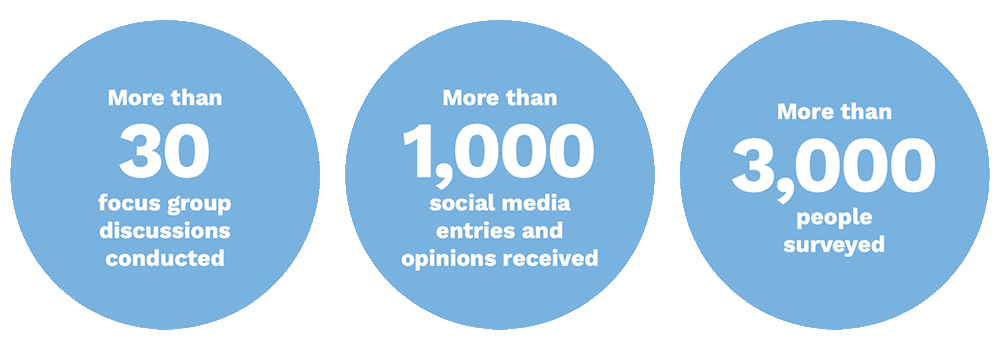
WHAT HAVE WE HEARD?
Singaporeans largely have a positive outlook on life. In particular, our sense of purpose improves with age.
Most Singaporeans expect to retire at 65, which is similar to the age where one is perceived to be old.
Singaporeans are also increasingly satisfied with various aspects of our lives as we age, and feel positive
and confident about ageing successfully, particularly in respect to having our needs taken care of.
That said, in comparison to younger age groups, seniors aged 65 and above tend to be less confident
about their future, their ability to be in control and are afraid of being left behind.
Based on the sentiments that were shared, the refreshed Action Plan will be centred around the three key themes of Care, Contribution and Connectedness, otherwise known as the 3Cs.